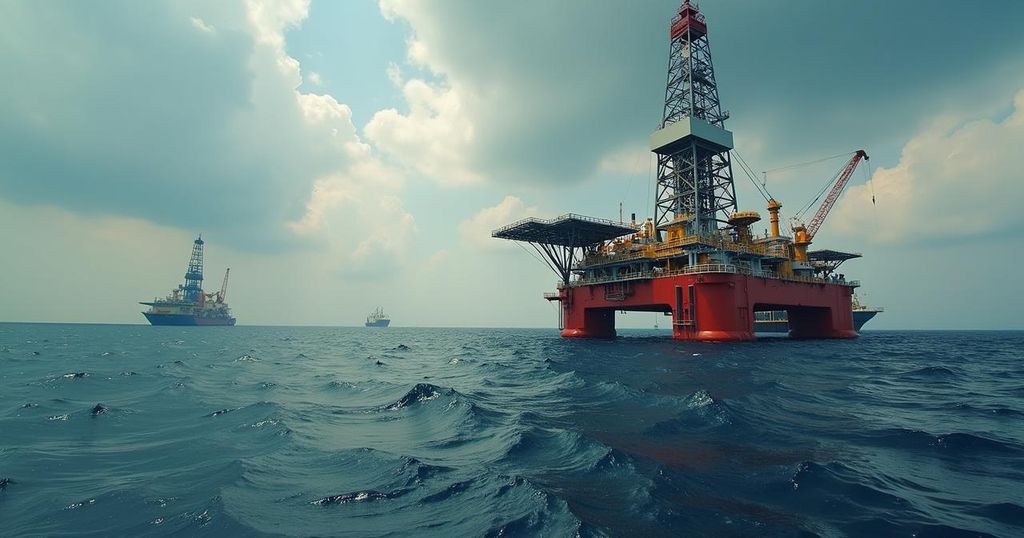In response to rising tensions with Israel, Saudi Arabia, UAE, and Qatar lobby the U.S. to protect Gulf oil interests, seeking to stave off potential military actions against Iran. Iranian officials are actively pursuing support from Gulf nations to de-escalate conflict, voicing concerns over the threat Israel poses to regional stability. All three Gulf countries have restricted Israeli airspace access, highlighting the precarious security of oil facilities in the event of conflict.
In the face of escalating tensions between Iran and Israel, Saudi Arabia, the United Arab Emirates (UAE), and Qatar are actively lobbying Washington to shield Gulf oil interests from potential Israeli attacks. Iranian Foreign Minister Abbas Araghchi recently indicated that Iran is seeking alliances with Gulf states to de-escalate the rising conflict. Diplomatic sources suggest this visit aims to uphold Iran’s stance while mitigating the risks of a broader regional war. According to anonymous Gulf sources, these nations express serious concerns regarding the ramifications of possible assaults on Iranian oil facilities, which could also threaten their assets in return, should conflict arise. Saudi Arabia, UAE, and Qatar have collectively declined to allow Israeli aircraft to traverse their airspace, a position that Tehran reaffirmed by warning Riyadh of the precarious security of its oil facilities amidst any military escalations. An analyst close to the Saudi royal court relayed that Iran has asserted: “If the Gulf states open up their airspace to Israel, that would be an act of war.” Reports have also surfaced indicating that Israel is preparing for retaliatory strikes against Iranian military installations, potentially targeting government intelligence sites and key personnel. President Biden has cautioned against any military actions that could escalate tensions further, notably refraining from direct strikes on Iran’s nuclear or energy infrastructures. Experts caution that a full-scale conflict between Israel and Iran could disrupt global energy supplies, causing significant repercussions for the worldwide economy, with analysts asserting that sharply reduced oil exports might lead to detrimental economic impacts.
The relationship between Iran and Gulf nations, particularly Israel, has been fraught with tension, especially with the recent increase in military threats and geopolitical maneuvering. The potential for conflict arises from Israel’s long-standing opposition to Iran’s nuclear ambitions, and recent Israeli military readiness signals have increased fears of an impending assault on Iranian military targets. As these developments unfold, Gulf states are acutely aware of their vulnerability, especially in protecting their critical infrastructure against retaliatory actions stemming from any Israeli offensive. The implications of such conflicts not only threaten regional stability but also pose risks to global energy markets and economic stability.
In summary, the ongoing diplomatic efforts by Saudi Arabia, the UAE, and Qatar to mitigate Israeli threats against Iranian oil assets underscore the fragility of the Gulf’s geopolitical landscape. With Iran actively seeking support to avoid conflict and maintain its regional standing, the potential for a broader war looms large, which could disrupt crucial energy supplies and impact global economies. The caution expressed by international leaders, including President Biden, further emphasizes the need for restraint to prevent a catastrophic escalation of hostilities in the region.
Original Source: oilprice.com






